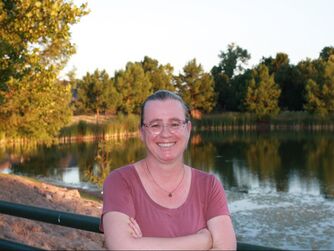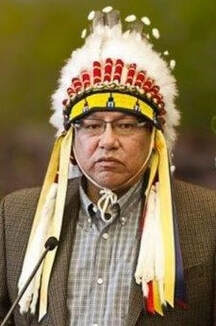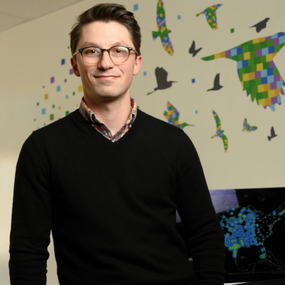2024 ARCHIVES|Plenary Presenters
TUESDAY: Plenary Session I

Kirsten DeBeurs, Ph.D., Professor/Chair, Wageningen University and Research
Kirsten de Beurs currently serves as a Professor and Chairholder in the Laboratory of Geo-information Science and Remote Sensing at Wageningen University. Prior to her tenure at Wageningen University, she was a Full Professor in the Department of Geography and Environmental Sustainability at the University of Oklahoma. From 2015 to 2020, she assumed the role of Department Chair in that academic unit. Dr. de Beurs’ scholarly pursuits are focused on the analysis of earth observation data pertaining to terrestrial ecosystems. Her research lies at the nexus of remote sensing and environmental sustainability, addressing overarching challenges such as climate change, biodiversity loss, and the emergence of infectious diseases as a result of land use and land cover change.
Kirsten de Beurs currently serves as a Professor and Chairholder in the Laboratory of Geo-information Science and Remote Sensing at Wageningen University. Prior to her tenure at Wageningen University, she was a Full Professor in the Department of Geography and Environmental Sustainability at the University of Oklahoma. From 2015 to 2020, she assumed the role of Department Chair in that academic unit. Dr. de Beurs’ scholarly pursuits are focused on the analysis of earth observation data pertaining to terrestrial ecosystems. Her research lies at the nexus of remote sensing and environmental sustainability, addressing overarching challenges such as climate change, biodiversity loss, and the emergence of infectious diseases as a result of land use and land cover change.
WEDNESDAY: Plenary Session II

Gordon Yellowman, Historian & Cheyenne Chief, Cheyenne and Arapaho Tribes
Gordon Yellowman, Sr., is an enrolled citizen of the Cheyenne and Arapaho Tribes, a federally recognized tribal nation. Mr. Yellowman has devoted more than 31 years of service to tribal government, culture and language work for the Cheyenne and Arapaho Tribes. He currently serves as the Tribal Historian, Culture Resources Program, Department of Language and Culture.
In 2022, Mr. Yellowman served as an Environmental Review Board Member for the Cheyenne and Arapaho Tribes. In 2020, served as narrator and featured in Neskemene Brownfields Project site, a short documentary film focusing on the Concho Indian Boarding School. A contaminated site, the demolition of two cottages, filled with hazardous materials, lead base paint and asbestos. In 2010 he was honored by the Red Earth Inc., as the Honored One. In 2017, he was honor by Sovereign Symposium Inc., as the Honored One.
Mr. Yellowman’s academic experience includes:
Gordon Yellowman, Sr., is an enrolled citizen of the Cheyenne and Arapaho Tribes, a federally recognized tribal nation. Mr. Yellowman has devoted more than 31 years of service to tribal government, culture and language work for the Cheyenne and Arapaho Tribes. He currently serves as the Tribal Historian, Culture Resources Program, Department of Language and Culture.
In 2022, Mr. Yellowman served as an Environmental Review Board Member for the Cheyenne and Arapaho Tribes. In 2020, served as narrator and featured in Neskemene Brownfields Project site, a short documentary film focusing on the Concho Indian Boarding School. A contaminated site, the demolition of two cottages, filled with hazardous materials, lead base paint and asbestos. In 2010 he was honored by the Red Earth Inc., as the Honored One. In 2017, he was honor by Sovereign Symposium Inc., as the Honored One.
Mr. Yellowman’s academic experience includes:
- University of Oklahoma College of Arts and Sciences, 2008-2011, Native American Studies Program.
- Cheyenne and Arapaho Tribal College, Southwestern Oklahoma State University, 2003-2005.
- Adjunct Professor/Faculty – Cheyenne and Arapaho Tribal College, Southwestern Oklahoma State University, Plains Indian Art and Native American Belief Systems, 2005-2015.
THURSDAY: Plenary Session III

Kyle G. Horton, Ph.D. Assistant Professor, Colorado State University
Dr. Kyle is an assistant professor at Colorado State University in the Department of Fish, Wildlife, and Conservation Biology. He uses remote-sensing tools, like radar, to better understand how migrants fill the nighttime airspace, determine where and when migrants are impacted by artificial light, and how these data can be integrated with community science records to better understand migration and forecast movements. Kyle Horton received his B.S. in Biology from Canisius College in 2011, his M.S. in Wildlife Ecology at the University of Delaware in 2013, and his Ph.D. in Ecology and Evolutionary Biology at the University of Oklahoma in 2017.
Dr. Kyle is an assistant professor at Colorado State University in the Department of Fish, Wildlife, and Conservation Biology. He uses remote-sensing tools, like radar, to better understand how migrants fill the nighttime airspace, determine where and when migrants are impacted by artificial light, and how these data can be integrated with community science records to better understand migration and forecast movements. Kyle Horton received his B.S. in Biology from Canisius College in 2011, his M.S. in Wildlife Ecology at the University of Delaware in 2013, and his Ph.D. in Ecology and Evolutionary Biology at the University of Oklahoma in 2017.
